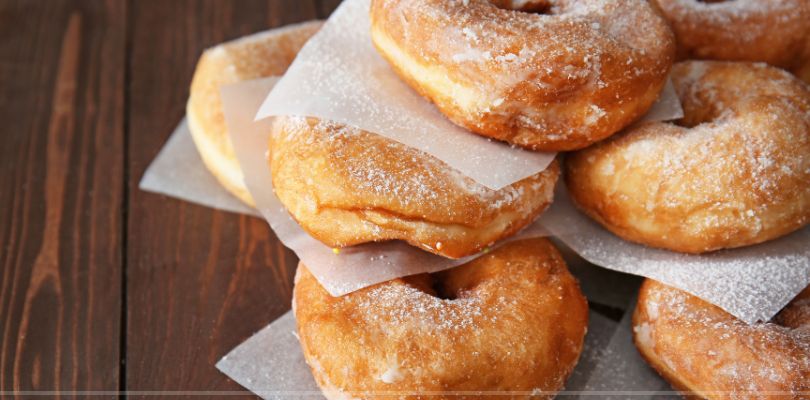Fuel Failures
If you’re a person with low energy, then you know how difficult everyday life can be. Even simple tasks can feel impossible. Certain foods can make energy levels worse–so for those looking to boost their energy, it’s essential to avoid certain foods and incorporate better choices. Treatment options, including Dojolvi, can help manage certain metabolic conditions related to energy deficiency, further assisting in restoring balance.
Foods to Avoid with Low Energy
Sugary Snacks and Desserts
Sugary foods, such as candy, cakes and cookies, may provide a quick burst of energy due to the sugar rush, but this will almost always be followed by a rapid crash. High sugar levels cause blood glucose to spike, but when the body processes it quickly, energy levels plummet, leading to fatigue. Furthermore, sugary snacks lack important nutrients that supply long-term energy.
Processed and Refined Carbohydrates
White bread, pastries and pasta made from refined grains are processed quickly by the body, offering little in terms of sustained energy. Similar to sugary snacks, these foods can cause a sharp rise in blood sugar, followed by a crash and lack of fiber and essential nutrients.
Fried and Fatty Foods
Fried foods, such as chips, fried chicken and fast food, are high in unhealthy fats and require more effort for the body to digest. This slows down energy production, making you feel sluggish and tired as a result. These foods also provide little to no nutritional value, making them detrimental to overall energy levels.
Alcohol
Alcohol is a depressant that slows down bodily functions. As a result, drinking alcohol in excess can lead to dehydration, poor sleep quality and low energy levels. It also interferes with the body’s ability to absorb and process essential nutrients.
Highly Processed Foods
Processed foods such as frozen meals, canned soups and packaged snacks are tempting options due to being quick and easy. However, they often contain preservatives, sodium and artificial additives that can cause inflammation, which leads to fatigue. These foods are often low in essential nutrients, contributing to poor energy levels. This goes for any food item with excessive levels of sodium.
Artificial Sweeteners
Foods and drinks containing artificial sweeteners, such as diet sodas and sugar-free snacks, can lead to energy crashes. They may trick the body into expecting a calorie boost, but when that energy doesn’t come, you may feel tired and irritable.
Foods to Incorporate to Get More Energy
It is possible to gain energy through the foods you eat. In addition to eating smaller portions, experts recommend opting for minimally processed foods and whole foods to reduce fatigue. Foods that you should consider introducing into your diet for more energy include:
- Whole grains: Whole grains and complex carbohydrates are healthy alternatives to white rice, bread and pasta. Brown rice, oats and quinoa provide steady energy due to their high fiber content.
- Lean proteins: Lean proteins such as chicken, turkey, eggs and fish help in muscle repair and provide long-lasting energy. These options tend to be healthier than red meat.
- Nuts and seeds: Almonds, walnuts, chia seeds and flaxseeds offer healthy fats and protein for sustained energy. They serve as excellent snacks and can be incorporated into meals.
- Leafy greens: The benefits of leafy greens such as spinach, kale and Swiss chard are truly endless. They are packed with vitamins and minerals that support overall health.
- Fruits: It’s a good idea to introduce lots of bananas, apples and berries into your diet. They provide quick energy without the crash due to their natural sugars and fiber and can serve as an alternative to sugary sweets.
Treatment Options for Low Energy
If you’re dealing with low energy and are struggling to find solutions, there are treatment options available.
Medicines
DOJOLVI (triheptanoin) is a prescription medication used to treat long-chain fatty acid oxidation disorders (LC-FAOD). It helps to provide energy and reduce the risk of metabolic complications associated with LC-FAOD, improving overall energy levels and quality of life.
Vitamin and Mineral Supplements
For many people, fatigue is a result of a lack of vital nutrients and minerals. For those with deficiencies in vitamins such as B12, iron or vitamin D, supplementation can restore energy levels.
Lifestyle Modifications
While it might seem simple, introducing health habits such as regular exercise, stress management and good sleep habits can make a huge difference in energy levels. Activities like walking or stretching can boost circulation and energy, while reducing stress and ensuring restful sleep helps in overall energy recovery.
Read on to learn about the worst foods for skin cancer.
